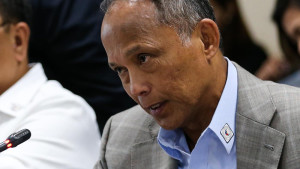The Bangko Sentral ng Pilipinas (BSP) has warned the public against swindlers impersonating one of its top officials to take advantage of depositors with insurance claims from closed banks.
“The modus operandi of scammers or swindlers include posing or representing themselves as Mr. Nestor A. Espenilla Jr., Deputy Governor of the supervision and examination sector of the BSP. The swindlers represent themselves as having the capacity to facilitate the immediate release of deposits from closed banks,” the BSP said in an advisory.
The BSP reminded the public that claims for their deposits from closed banks should only be coursed through the Philippine Deposit Insurance Corp. (PDIC), which is the sole government agency responsible for the processing of claims and release of deposit insurance to depositors of shuttered banks.
Since the PDIC—not the BSP—directly deals with depositors of closed banks, no BSP official is authorized to facilitate immediate release of deposits or deposit insurance, it pointed out.
The BSP warned that the scammers may reach potential victims possibly through written communication such as letters, electronic mail and text messages as well as through telephone calls, which may be made to appear as officially originating from the central bank.
“For fake documents, scammers or swindlers may copy or imitate the BSP seal and simulate the format of official documents; fake documents may include forged or digitally copied signatures of Espenilla or other BSP officials,” it added.
“Any document or communication of such tenor using the name of the BSP, Espenilla or other BSP officials should be dealt with caution,” the BSP said.
“If unsure of the authenticity of documents or communications relating to processing of deposits in closed banks or deposit insurance claims, which are alleged to be from Espenilla or other BSP officials, call the BSP or PDIC for assistance. The public is enjoined to inform the BSP or PDIC if they receive such fictitious documents or information on any fraudulent representations done for the purpose of illegally soliciting funds from depositors of closed banks,” according to the BSP.


